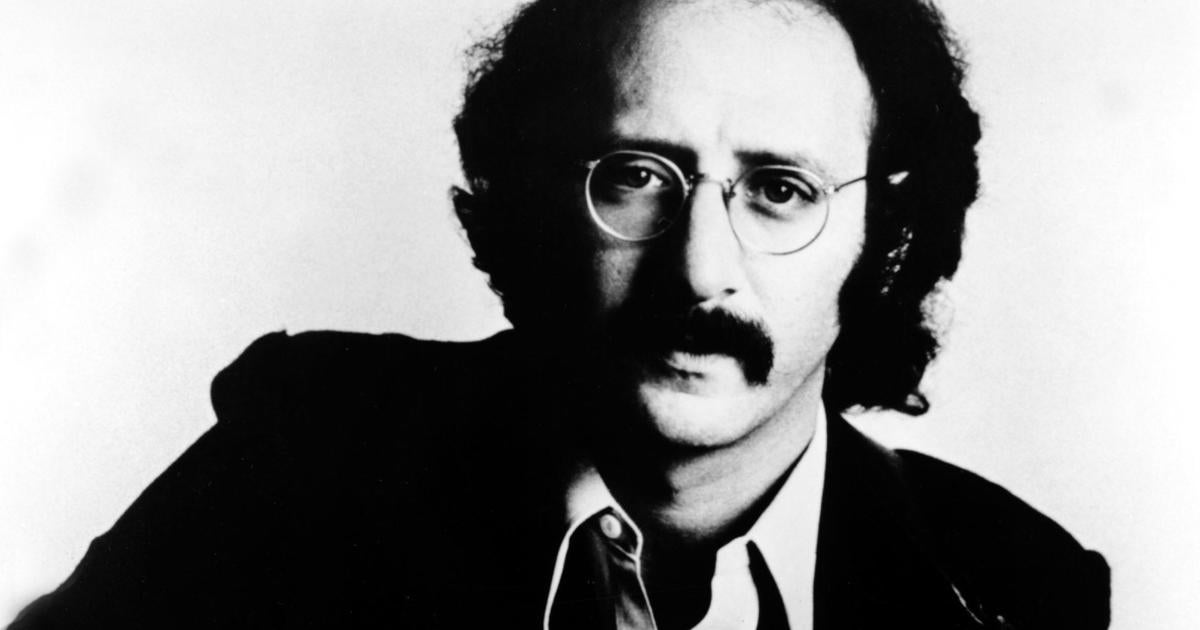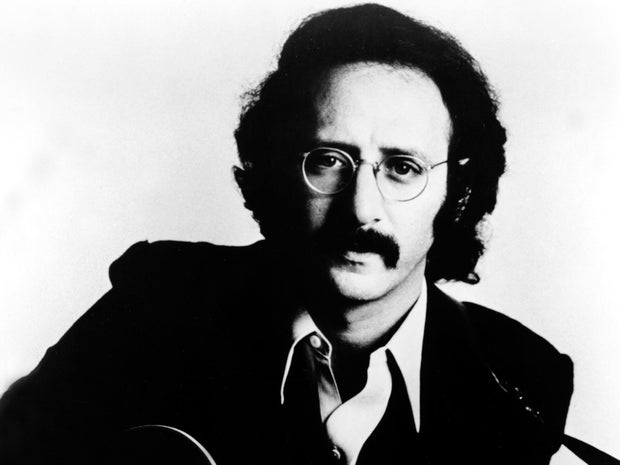Peter Yarrow, the singer-songwriter best known as one-third of Peter, Paul and Mary, the folk-music trio whose impassioned harmonies transfixed millions as they lifted their voices in favor of civil rights and against war, has died, publicist Ken Sunshine confirmed to CBS News. Yarrow was 86.
Yarrow, who also co-wrote the group’s most enduring song, “Puff the Magic Dragon,” died Tuesday in New York, Sunshine told the Associated Press. Yarrow had been battling bladder cancer for the past four years.
“Our fearless dragon is tired and has entered the last chapter of his magnificent life. The world knows Peter Yarrow the iconic folk activist, but the human being behind the legend is every bit as generous, creative, passionate, playful, and wise as his lyrics suggest,” his daughter Bethany said in a statement.
Michael Ochs Archives/Getty Images
During an incredible run of success spanning the 1960s, Yarrow, Noel Paul Stookey and Mary Travers released six Billboard Top 10 singles, two No. 1 albums and won five Grammys.
They also brought early exposure to Bob Dylan by turning two of his songs, “Don’t Think Twice, It’s All Right” and “Blowin’ in the Wind,” into Billboard Top 10 hits as they helped lead an American renaissance in folk music. They performed “Blowin’ in the Wind” at the 1963 March on Washington at which the Rev. Martin Luther King Jr. delivered his famous “I Have a Dream” speech.
After an eight-year hiatus to pursue solo careers, the trio reunited in 1978 for a “Survival Sunday,” an anti-nuclear-power concert that Yarrow had organized in Los Angeles. They would remain together until Travers’ death in 2009. Upon her passing, Yarrow and Stookey continued to perform both separately and together.
Born May 31, 1938, in New York, Yarrow was raised in an upper middle class family he said placed high value on art and scholarship. He took violin lessons as a child, later switching to guitar as he came to embrace the work of such folk-music icons as Woody Guthrie and Pete Seeger.
Upon graduating from Cornell University in 1959, he returned to New York, where he worked as a struggling Greenwich Village musician until connecting with Stookey and Travers. Although his degree was in psychology, he had found his true calling in folk music at Cornell when he worked as a teaching assistant for a class in American folklore his senior year.
“I did it for the money because I wanted to wash dishes less and play guitar more,” he told the late record company executive Joe Smith. But as he led the class in song, he began to discover the emotional impact music could have on an audience.
“I saw these young people at Cornell who were basically very conservative in their backgrounds opening their hearts up and singing with an emotionality and a concern through this vehicle called folk music,” he said. “It gave me a clue that the world was on its way to a certain kind of movement, and that folk music might play a part in it and that I might play a part in folk music.”
This is a breaking news story. Check back for updates.


